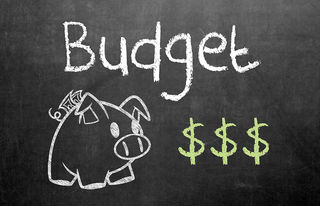Consumer Behavior
Why Using Coupons Is Bad For Your Wallet
If you use coupons regularly, it might end up costing you money.
Posted August 5, 2015
Most Americans are crazy about coupons. They clip coupons from every newspaper and magazine they come across. They check popular couponing websites like The Krazy Coupon Lady, Coupons.com, and RetailMeNot and scan emailed offers from Groupon and LivingSocial every day. Each time they visit a grocery store or an online retailer, they are armed with a sheaf of coupons or a list of promo codes. Within the store, they look out for in-store coupons like hawks. Estimates of coupon crazy shoppers vary depending on who you ask and how you define them, but all estimates are rather ginormous numbers: anywhere between 40% and 80% of all Americans use coupons regularly.

At the first blush, regular coupon use appears to be the hallmark of frugal and prudent shopping behavior. After all, by its very nature, someone using a coupon gets to buy the item for a lower price than someone who doesn’t use a coupon.
But are regular coupon users really prudent shoppers, and do they get the most bang for their shopping bucks?
Surprisingly, a quarter century worth of research by consumer psychologists suggests that the answer is a resounding “NO”! Even though regular coupon use creates the appearance of prudence, when shopping, its problems boil down to four main factors:
- Regular coupon users pay less attention to the actual price and often end up paying more money. Believe it or not, because they love the idea of getting a deal, regular coupon users tend to pay more attention to whether the item can be purchased with a coupon rather than its actual price. Consider this example. A six-pack of Greek yogurt can be purchased for $4.29 with a $.50 off coupon (regular price = $4.79) one week, but it sells for a regular price of $3.99 without any coupons during another week. When will regular coupon users prefer to buy the yogurt? The first week! Studies show that habitual coupon users prefer to buy the yogurt with a coupon even if they have to shell out more money. The thrill of using a coupon and getting a better deal than other consumers takes precedence and shoppers lose sight of the actual cost. The result: Regular coupon users often spend more for an item than those who don’t use coupons.

- Regular coupon users buy things they don’t need. Most books and websites that advocate and teach the practice of couponing will tell you that you should be opportunistic. A common refrain: “(When using coupons), don't limit yourself to products you need right now.” This advice makes a lot of sense if the shopper’s goal is to use the maximum number of coupons during a shopping trip. But it is a major problem if the goal is to shop prudently. Any money saved by using coupons is quickly relinquished (and then some) by buying unnecessary items. Any regular coupon user reading this will easily recall the last time they bought a new flavored vinegar or a bag of exotic vegetable chips (or something equally frivolous) just because they had coupons for these items. In a recent survey conducted by Consumer Reports, 63% of shoppers admitted to buying things they didn’t need just because they had a coupon or the item was on sale. Part of the reason for this spending is that people react more strongly to coupons of products they don’t know very well than for familiar products. Kombucha juice anyone?
- Regular coupon users buy more than they need. One important reason marketers offer coupons for their products is to reward customers who buy in bulk. That is why many coupons have minimum limits such as “Must buy 6”. Such quantity discounts make sense for marketers because they reduce costs associated with a purchase transaction and increase inventory turnover, contributing to revenue and profits. But the benefits of buying in bulk are not so obvious for consumers. Rather, bulk buying could have harmful consequences. Buying more equals consuming faster or simply consuming more for many people. For example, studies on portion size show that size matters: simply having a larger bag of potato chips leads to more chip eating. The same idea applies to having multiple bags of potato chips. For others, buying more than they need leads to expired or spoilt items that are simply thrown away, leading to wastefulness and a false sense of saving money. In some extreme cases, it may even encourage hoarding behaviors or lead to ridiculous situations like purchasing 70 bottles of mustard when family members don’t even like mustard.
 Source: Budget by GotCredit Flickr Licensed Under CC BY 2.0
Source: Budget by GotCredit Flickr Licensed Under CC BY 2.0 - Regular coupon users spend beyond their budget. Do shoppers spend more during their shopping trip because of coupon promotions? In an impressive study examining the entire shopping baskets of over 23,000 European households over a year, marketing scientists Xavier Dreze, Patricia Nisol and Naufel Vilcassim found that when buying a promoted item (say, using a coupon), consumers not only bought more within the category of the promoted item (for example, they spent more money on bakery items when they bought a loaf of bread with a coupon) but they also spent significantly more money as a whole during their shopping trip. Such overspending is made worse by the fact that many shoppers have flexible budgets to begin with (or no budget at all) and make many purchases impulsively without prior planning. So they are particularly likely to over-spend when they come across in-store coupons.

Marketers continue to give out so many coupons --- 305 billion in 2012 alone, according to one estimate --- only because they increase revenues and profits. However, for consumers, whether they are shopping for groceries every week or for unique items like a refrigerator or golf clubs once in a blue moon, finding and using coupons might not necessarily lead to the most prudent shopping behavior or saving the most money. The bottom-line is that using coupons pushes consumers to pull the trigger and make purchases even when the correct (and prudent) choice would be to postpone buying to another occasion or not buy anything at all. Coupons cannot be used by shoppers who abstain.
For many coupon crazy shoppers, giving up the couponing habit, or at least cutting down on it, may actually be the easiest and quickest way to get more value out of their shopping dollars, and to save time and money.
If you found this post to be interesting you might want to know: Do shoppers benefit from buying with subscriptions?
More About Me
I teach core marketing and pricing to MBA students at Rice University and my academic vita is here.
You can find and download a lot of my academic and some of my practitioner-oriented writing at SSRN. If you can’t find something old I have written, shoot me an email and I will send it to you.
Some of my writing for managers and business people can be found at HBR.org and I also write a relatively new blog called “The Science behind Behavior” on Psychology Today.
You can connect with me on LinkedIn or Facebook, or you can send me an email. All questions, comments, thoughts, and ideas for future blog pieces or academic research projects are welcome.


